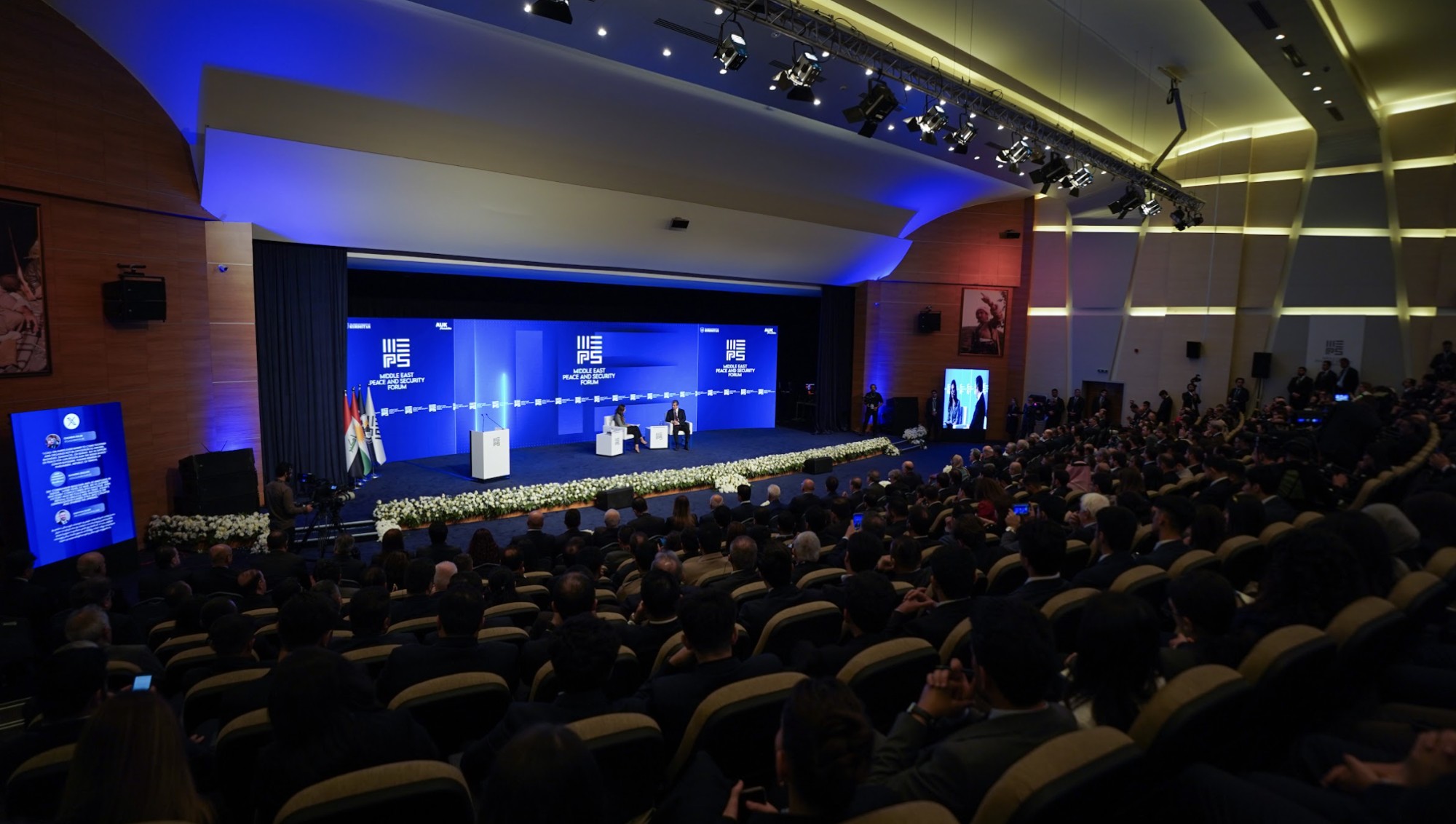Six months have passed since the last parliamentary elections in the Kurdistan Region, yet a new government has not been formed. The prolonged period, however, is increasingly seen as an opportunity for major political parties to find common ground and build unity in the face of external challenges.
Historically, the Kurdistan Democratic Party (KDP) and the Patriotic Union of Kurdistan (PUK) have dominated the political landscape of the Kurdistan Region. In the most recent elections, the KDP and PUK won 39 and 23 seats, respectively, in the 100-seat parliament. The New Generation Movement came in third with 15 seats but soon made the expected move to join the opposition.
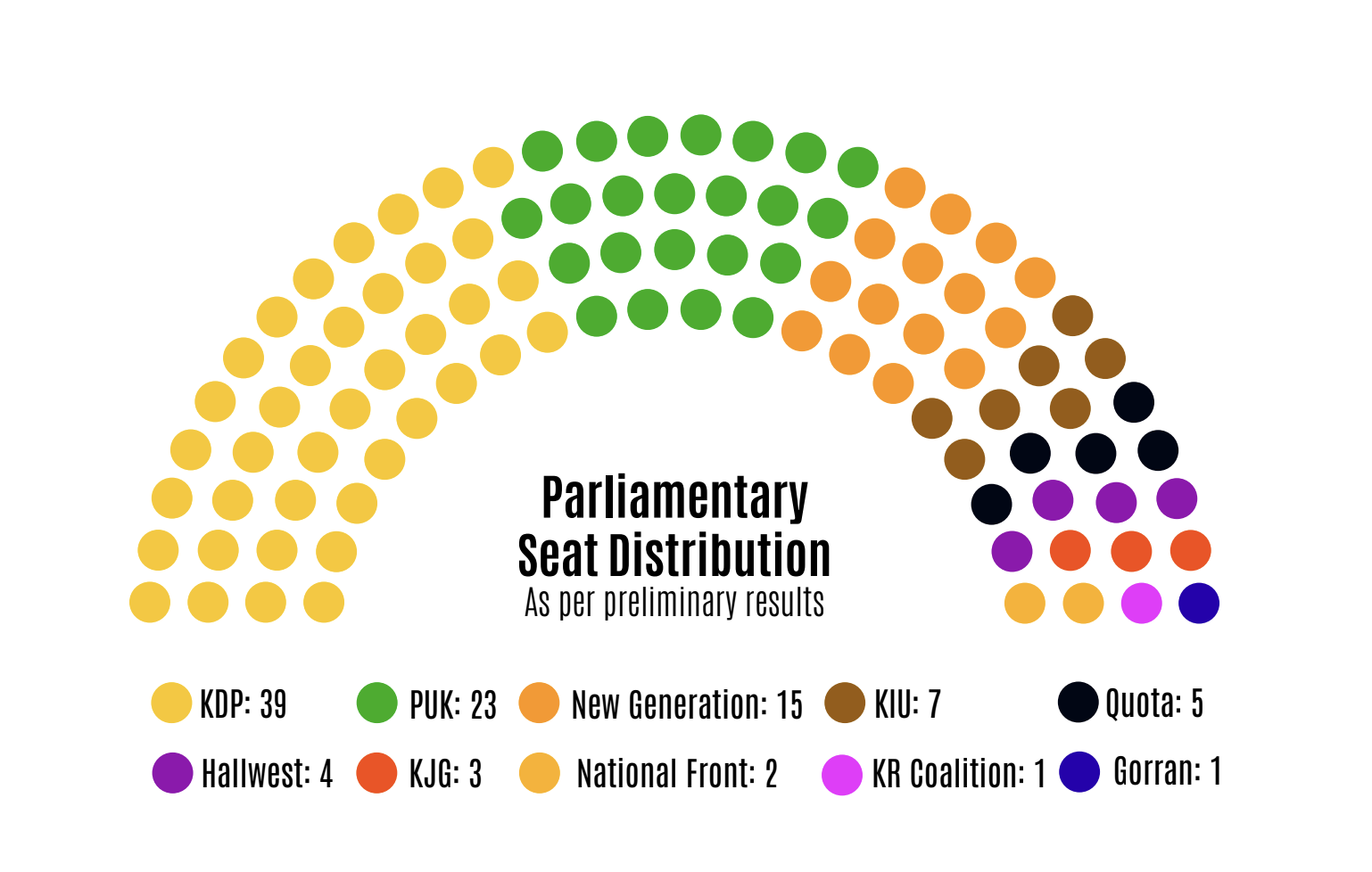
Ongoing dialogue
Since the official announcement of the election results, the KDP and PUK have been engaged in talks to agree on a formula that satisfies both sides’ expectations for the next government. As of mid-April, the two political parties have held several bilateral meetings and, according to their affiliated media, have laid the groundwork for a final agreement. The next round of talks are expected to focus on the distribution of key ministerial positions.
No changes are expected in the top leadership positions. As the majority party, the KDP is likely to nominate the president and prime minister of the Kurdistan Region, while the PUK is set to take the role of parliament speaker.
As for the ministerial roles, negotiations are still ongoing, and a reshuffle is highly likely.
As it has reiterated on multiple occasions, the KDP leadership initially sought to include the broadest possible coalition of political parties in the new cabinet. But the initiative was ultimately abandoned, leaving the KDP and PUK with one viable option – finding more common ground to strengthen what is known as their “strategic partnership.”

A chance for unity
Amid rising tensions and new crises across the Middle East, the Kurdish leadership appears increasingly aware that internal unity is more vital than ever. This understanding is likely driving the KDP and PUK to focus on shared objectives rather than partisan divisions.
In a recent public statement, President Masoud Barzani, one of the most influential Kurdish leaders in the Kurdistan Region and Iraq, underscored the importance of unity among Kurdish parties and encouraged broad participation in the political process.
Speaking at the opening ceremony of the Erbil International Book Fair on April 9, President Barzani said the Kurds collectively reaffirm their commitment to maintaining a culture of unity, mutual respect, and freedom of thought, religion, and belief.
“These are the foundations that should never be compromised,” President Barzani emphasized.
“We are happy with those who gained seats, and we will create a government, a cabinet, based on the collective will of everyone. Kurdistan belongs to all of us, and we are all brothers. No one should be treated differently,” the Kurdish leader stated. “Around us, in the Middle East and the wider world, there are great crises, and it is possible that even greater crises will arise. Therefore, the only chance for the success of the Kurds is unity.”
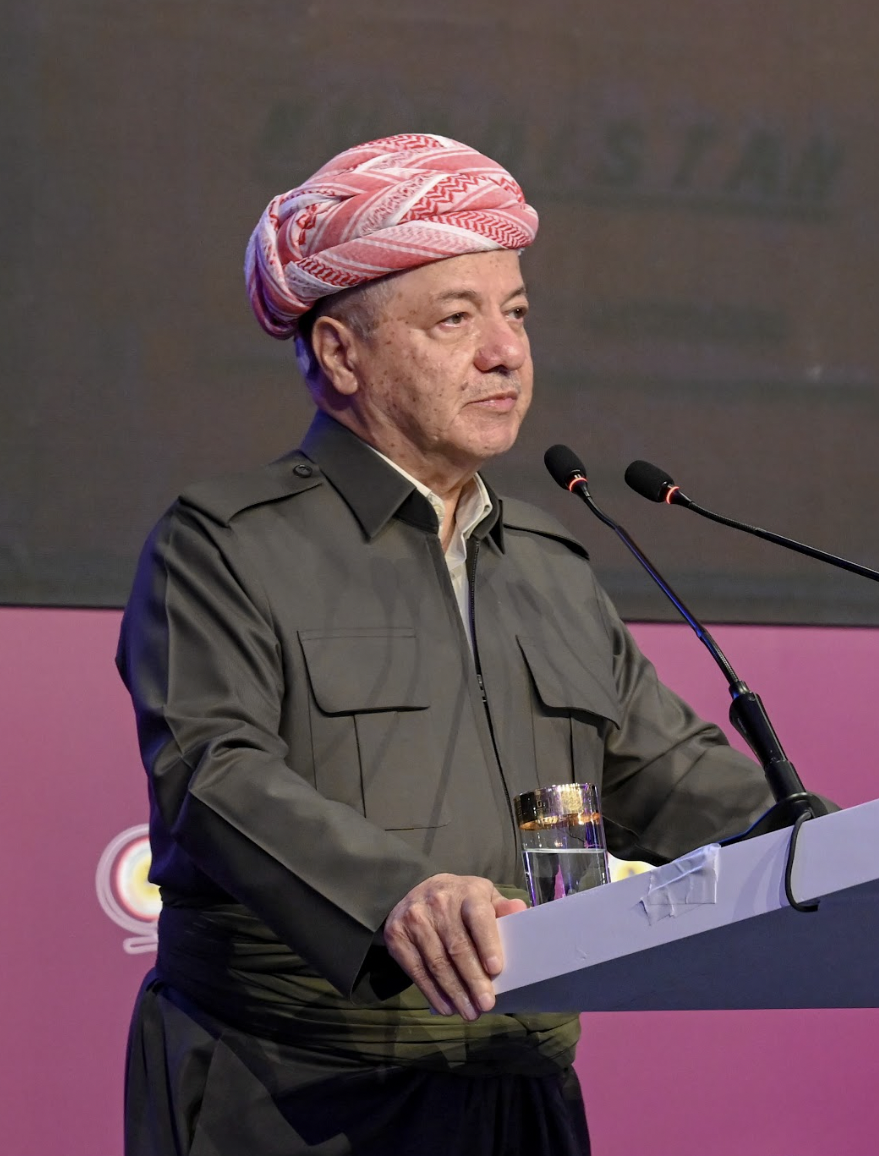
The Tenth Cabinet: formation and ambitions
While technical committees handle direct negotiations, the leadership of the KDP and PUK also continue to meet regularly. On March 16, Kurdistan Regional Government (KRG) Prime Minister Masrour Barzani met with the PUK’s leader Bafel Talabani to discuss the formation of the Tenth Cabinet of the KRG.
In a brief statement to the media following the meeting, both Prime Minister Barzani and Talabani described the talks as “productive” and highlighted their shared goal of forming a government that prioritizes public services and improved the quality of life for citizens.
“This is the second time we have had a constructive meeting aimed at bringing us closer together and discussing issues that are important to the people of Kurdistan and our region in general. There has been significant progress and understanding on these issues, and I hope that the delegations can reach a comprehensive agreement on the formation of the government in the near future,” Prime Minister Barzani said.
Talabani echoed Prime Minister Barzani’s sentiment, saying that they had agreed on “several strategic matters” that will benefit the people.
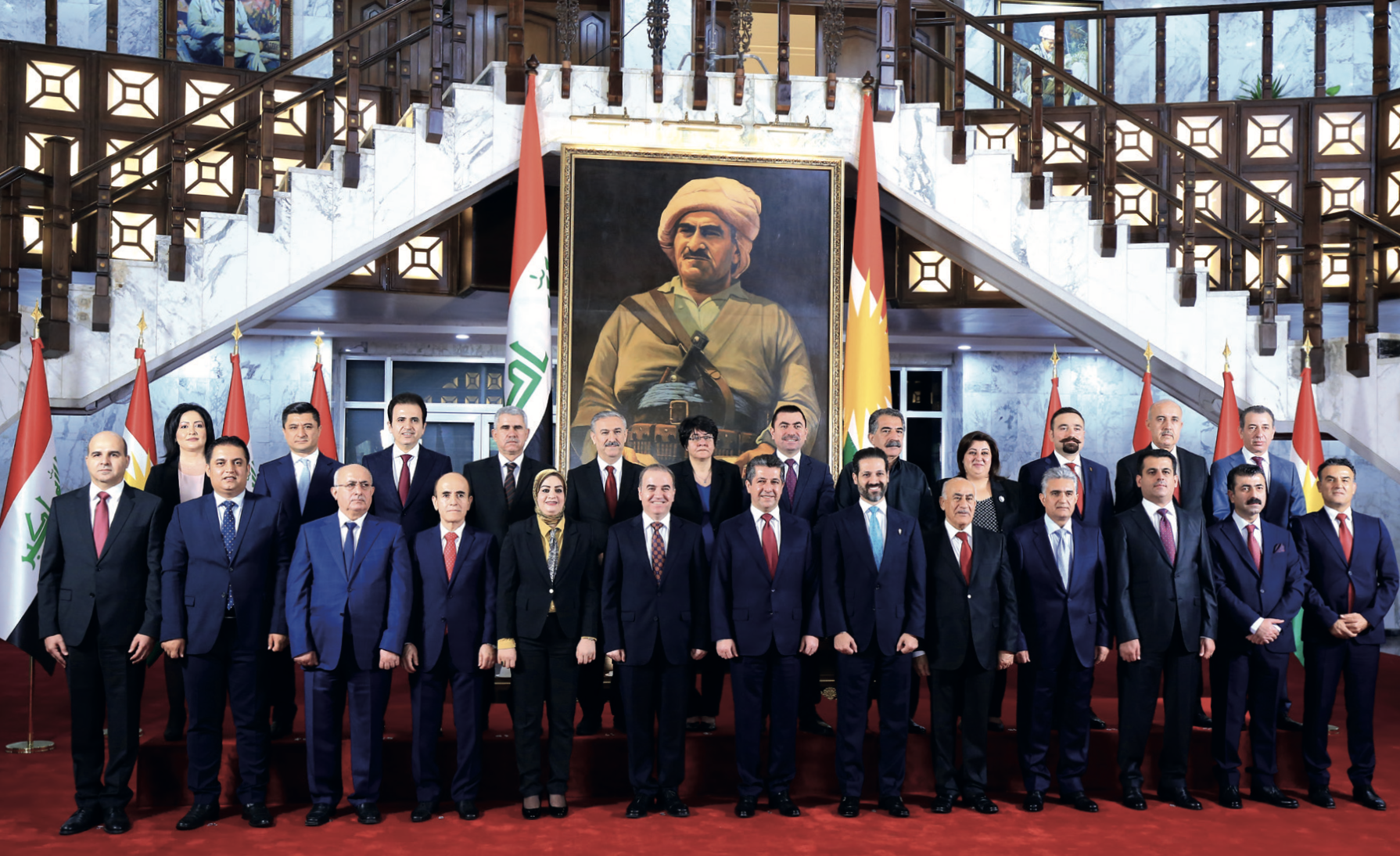
Kurdistan Region Prime Minister Masrour Barzani with his cabinet ministers after being sworn in at the Kurdistan Parliament (June 2019).
One Kurdistan, one government
What is clear for now is that the next cabinet will be led by the KDP’s Masrour Barzani as prime minister. The PUK’s Qubad Talabani is also expected to stay in his current role as deputy prime minister. However, both sides are working toward a more harmonious and collaborative government that reflects their partnership in policy execution and political vision, both domestically and internationally.
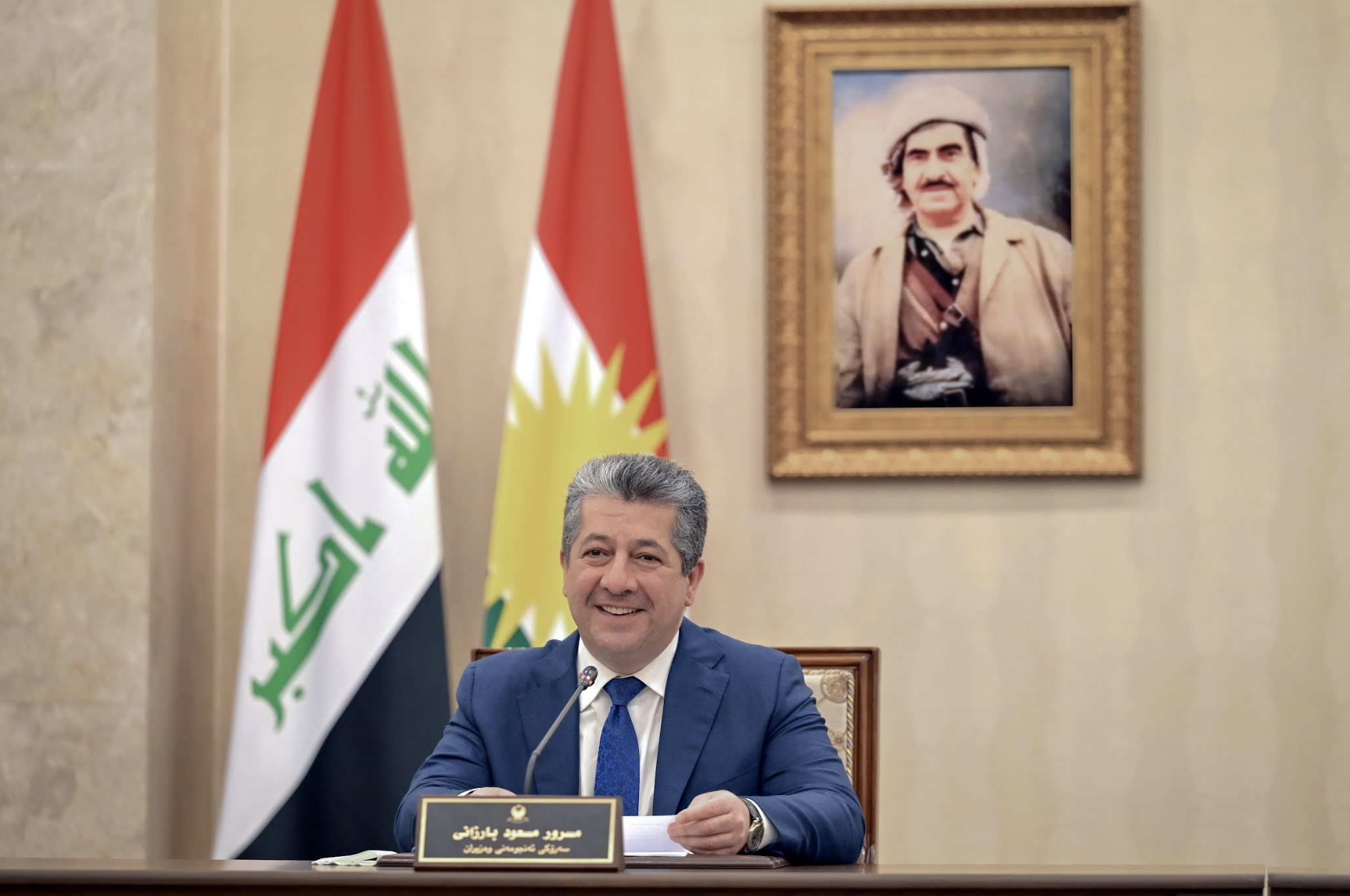
Yet forming a government is just one part of the broader vision. President Masoud Barzani has consistently stated that the October elections should mark the beginning of a new era for the Kurdistan Region that is characterized by “one government, one parliament, and one military.”
This, political observers agree, is the direction to watch in the months ahead.
Marewan Hawramy is a writer and has master’s degree in diplomacy and international relations.

